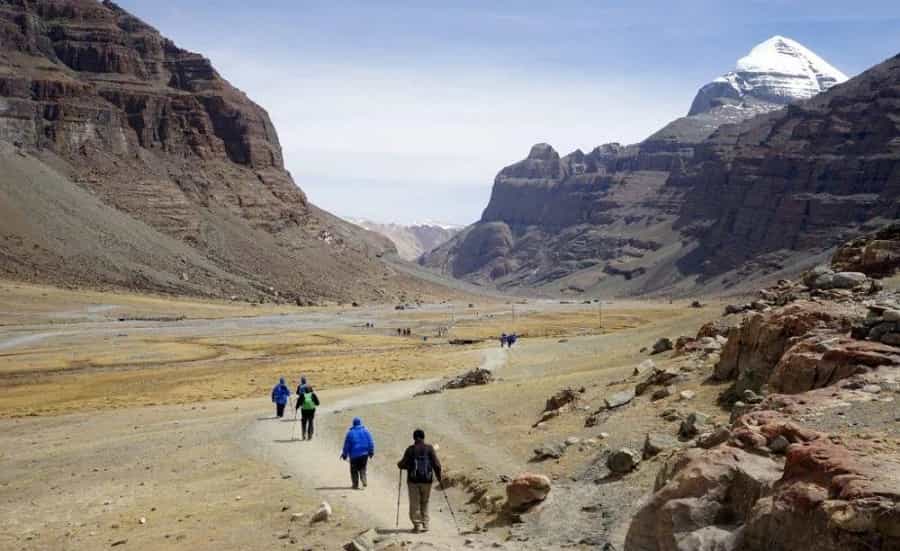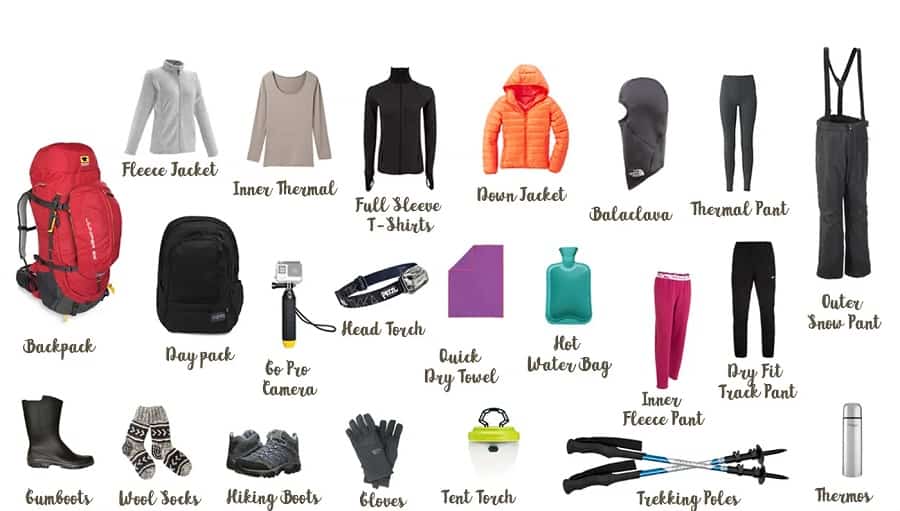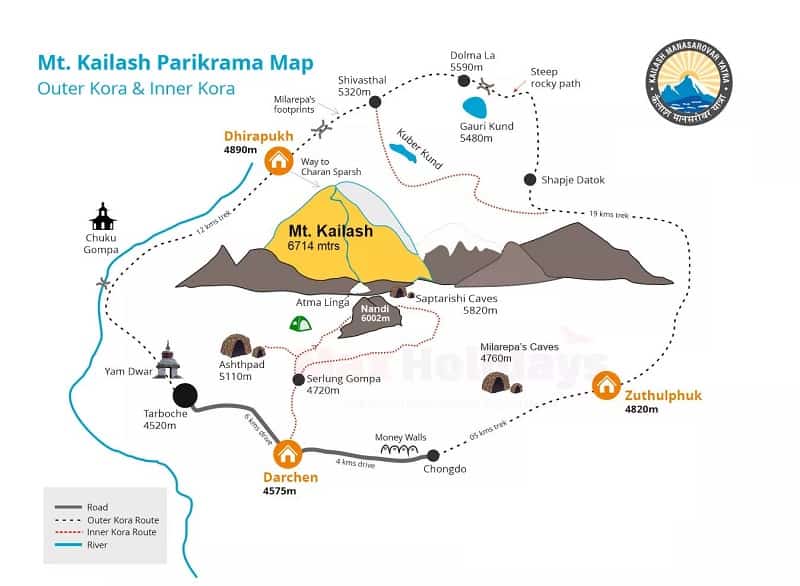Embarking on the spiritual journey of the Kailash Mansarovar Yatra is a dream for many devotees and adventure enthusiasts alike. This sacred pilgrimage takes you to the pristine and awe-inspiring region of Tibet, offering a unique blend of natural beauty, religious significance, and cultural exploration. To make the most of your Kailash Mansarovar Yatra, it’s crucial to be well-prepared and informed. In this article, we’ll provide you with essential travel tips to ensure a memorable and enriching experience.
Understanding the Significance of Kailash Mansarovar
The Kailash Mansarovar Yatra holds deep spiritual significance for Hindus, Buddhists, Jains, and followers of the Bon religion. The journey is believed to cleanse the soul and lead to enlightenment, making it an expedition of a lifetime. The sacred Mount Kailash is considered the abode of Lord Shiva in Hinduism, the center of the universe in Buddhism, and a place of spiritual power in Jainism and the Bon religion.

Choosing the Right Time for Yatra
The best time for the Yatra is during the summer months of May to September when the weather is more favorable and the pilgrimage sites are accessible. During this period, the snow melts, and the roads open up, allowing pilgrims to undertake the journey with ease. The clear skies also offer breathtaking views of the mountainous terrain.
Planning and Preparation
Visa and Permits
Obtain the necessary travel permits and visas for Tibet and the Kailash Mansarovar region well in advance. The permits are essential due to the restricted border area and the sensitive geopolitical situation. It’s advisable to coordinate with a reliable travel agency that specializes in organizing the Yatra and can assist you with the necessary paperwork.
Physical Fitness
Prepare your body for the altitude and physically demanding trek by engaging in regular exercises and yoga. The Kailash Mansarovar region is situated at a high altitude, and the Yatra involves trekking over challenging terrains. Building your cardiovascular fitness and strength will help you cope with the demands of the journey.
Packing Essentials
here’s a list of essential items to pack for your Kailash Mansarovar Yatra. Keep in mind the unique challenges of the journey, including the remote and high-altitude locations you’ll be visiting.

Clothing:
- Layered clothing for varying temperatures
- Thermal or base layers for cold weather
- Warm sweaters or fleeces
- Waterproof and windproof jacket
- Comfortable hiking pants and shorts
- Long-sleeve shirts for sun protection
- Sun hat and warm beanie
- Gloves and mittens
- Scarf or neck gaiter
Footwear:
- Sturdy, waterproof hiking boots
- Comfortable walking sandals or shoes for camp
- Woolen socks for warmth
- Gaiters (for keeping debris out of boots)
Gear:
- Durable backpack or duffel bag
- Daypack for carrying essentials during treks
- Sleeping bag suitable for cold weather
- Lightweight and compact sleeping pad
- Sunglasses with UV protection
- Trekking poles (if preferred)
- Headlamp or flashlight with extra batteries
- Reusable water bottle or hydration system
- Snacks and energy bars
Documents and Essentials:
- Passport, permits, and identification
- Printed copies of important documents
- Cash (local currency and USD)
- Travel insurance information
- Emergency contact numbers
- Camera or smartphone for capturing memories
Personal Care:
- Toiletries (soap, shampoo, toothbrush, toothpaste, etc.)
- Personal medications and medical supplies
- Lip balm and moisturizer
- Hand sanitizer and wet wipes
- Toilet paper or tissues
Health and Safety:
- Comprehensive first aid kit (see previous response)
- High-altitude sickness medication (if recommended by a doctor)
- Prescription medications and copies of prescriptions
- Diamox or other altitude sickness prevention medication (if advised)
- Insect repellent and anti-itch cream
- Sunscreen with high SPF and lip balm with SPF
- Water purification tablets or filter
- Hat and clothing to protect against strong sun exposure
Miscellaneous:
- Power bank or portable charger
- Adapters and chargers for electronic devices
- Multi-tool or pocket knife
- Small sewing kit
- Notepad and pen
- Travel pillow for added comfort
Important Tips:
- Pack light but ensure you have essentials for different weather conditions.
- Research the route and terrain to know what gear is necessary.
- Dress in layers to easily adapt to changing temperatures.
- Make a checklist to ensure you don’t forget anything important.
- Pack items in waterproof bags to protect against rain and moisture.
- Carry your essentials in a way that distributes weight evenly for comfort during treks.
Selecting the Appropriate Route
Choose between overland routes that involve trekking or the quicker helicopter routes based on your preferences and fitness level. The overland routes provide a more immersive experience as you get to witness the changing landscapes, interact with local communities, and complete the revered circumambulation (Parikrama) around Mount Kailash. On the other hand, helicopter routes are faster and suitable for those with time constraints or physical limitations.
Accommodation and Facilities
Be prepared for basic accommodation options during the Yatra. Acclimatization to the high altitude is crucial. The accommodations along the Yatra route vary from guesthouses to campsites, each offering a unique experience. It’s important to note that the facilities might be basic due to the remote location, but they are designed to cater to the needs of pilgrims.
Cultural Sensitivity and Etiquette
Respect local customs, dress modestly, and engage with the locals in a friendly and considerate manner. The region holds great cultural and religious significance, so it’s important to be mindful of your behavior. Dressing modestly shows respect for the local culture and the spiritual nature of the journey. Additionally, interacting with the locals allows you to learn about their way of life and gain a deeper understanding of the region.
Health and Safety Precautions
Altitude Sickness
Learn the symptoms of altitude sickness and take necessary precautions. Stay hydrated and ascend gradually. Altitude sickness is a common concern when undertaking the Kailash Mansarovar Yatra due to the high elevations. Symptoms can range from mild discomfort to severe headaches, nausea, and dizziness. Acclimatization is key, so take breaks, stay hydrated, and avoid strenuous activity in the initial days of the journey.
Hydration and Nutrition
Drink plenty of water and consume a balanced diet to maintain your energy levels during the journey. Proper hydration and nutrition play a crucial role in preventing altitude sickness and maintaining your overall well-being. While it’s essential to stay hydrated, avoid overexerting yourself, as this can lead to dehydration and fatigue.
First Aid Kit
Keep in mind that this is a general guideline and you should tailor the kit to your specific needs, any medical conditions you might have, and the advice of your healthcare professional.
Basic First Aid Supplies:
- Adhesive bandages (various sizes)
- Sterile gauze pads
- Adhesive tape
- Antiseptic wipes or solution
- Cotton balls/swabs
- Tweezers
- Scissors
- Disposable gloves
- Instant cold packs
- Thermometer
Medications:
- Pain relievers (ibuprofen, acetaminophen)
- Antihistamines (for allergies)
- Anti-diarrheal medication
- Rehydration salts/electrolyte packets
- Motion sickness medication (if prone to motion sickness)
- Prescription medications (if applicable)
- Personal medical supplies (e.g., asthma inhalers, EpiPen)
Wound Care:
- Antibiotic ointment
- Sterile wound dressings
- Sterile adhesive strips
- Moleskin (for blisters)
- Medical adhesive tape
Digestive Health:
- Digestive enzymes
- Probiotics
- Fiber supplements
Personal Hygiene:
- Hand sanitizer
- Soap
- Toilet paper
- Wet wipes
Sun Protection:
- Sunscreen (high SPF)
- Lip balm with SPF
Insect Protection:
- Insect repellent
- Calamine lotion (for insect bites)
Miscellaneous:
- Small flashlight with extra batteries
- Multi-tool or pocket knife
- Small mirror
- Personal identification and emergency contact information
- Notepad and pen
- Plastic bags (for waste disposal and waterproofing)
- Any essential personal medications or medical devices
Important Tips:
- Consult with your healthcare provider before your trip to ensure you’re medically prepared.
- Check the weather forecast and pack accordingly.
- Make sure all medications are in their original packaging and clearly labeled.
- If you have specific dietary needs, pack suitable snacks and supplements.
- Know basic first aid techniques and when to seek professional medical help.
Communication and Connectivity
Understand the limited mobile networks and internet availability in the region. Inform your loved ones accordingly. The remote and mountainous terrain of the Kailash Mansarovar region leads to limited connectivity. While some areas might have sporadic mobile network coverage, it’s important to set expectations with your family and friends about your ability to communicate during the journey.
Environmental Responsibility
Respect the environment by disposing of waste responsibly and minimizing your ecological footprint. The region’s pristine beauty is a testament to its untouched nature, and it’s crucial to maintain its integrity. Carry reusable water bottles, avoid single-use plastics, and ensure you leave no trace behind. Respect local guidelines for waste disposal and participate in eco-friendly practices.
Guided Tours vs. Solo Travel
Consider the benefits of guided tours, which provide local insights and handle logistical aspects, versus the freedom of solo travel. Guided tours offer the advantage of expert guides who are familiar with the region, its culture, and the challenges of the journey. They can also handle accommodations, permits, and transportation, allowing you to focus on the spiritual aspects of the Yatra. On the other hand, solo travel provides more flexibility and a personal connection with the journey.
Pilgrimage Rituals and Customs

Participate in the sacred circumambulation (Parikrama) around Mount Kailash and take a ritual dip in the holy Mansarovar Lake. The circumambulation of Mount Kailash, known as Parikrama, holds immense significance in the Yatra. It’s a physically demanding trek that requires devotion and determination. Similarly, taking a ritual bath in the crystal-clear waters of Mansarovar Lake is believed to cleanse the soul of sins and purify the spirit.
Capturing Memories
Document your journey through photography and journaling, preserving the memories of your transformative experience. The Kailash Mansarovar Yatra is not just a physical journey; it’s a spiritual and emotional one as well. Documenting your experiences through photographs and journal entries allows you to relive the moments and share your journey with others. Capture the stunning landscapes, interactions with fellow pilgrims, and the sense of inner peace that the Yatra brings.
Challenges and Rewards of the Yatra
Embrace the challenges, both physical and mental, as they contribute to your inner growth. The breathtaking landscapes will be your reward. The Kailash Mansarovar Yatra is not without its challenges. The high altitudes, rugged terrains, and unpredictable weather can test your physical and mental endurance. However, it’s through overcoming these challenges that you’ll experience a profound sense of achievement and inner transformation. The rewards are immeasurable, with panoramic views of snow-capped mountains, serene lakes, and a deep connection to spirituality.
Do’s & Don’ts
These guidelines will help you have a safe, respectful, and meaningful journey to this sacred destination.
Do’s:
- Respect the Local Culture and Traditions:
- Be respectful of the local customs, beliefs, and practices of the regions you visit.
- Dress modestly, especially when visiting temples and religious sites.
- Remove your shoes before entering sacred places.
- Prepare Physically and Mentally:
- Engage in physical training and conditioning to prepare for the challenging terrain and altitude.
- Be mentally prepared for the high-altitude conditions and possible physical discomfort.
- Follow Environmental Guidelines:
- Practice responsible tourism by minimizing your impact on the environment.
- Carry reusable water bottles and avoid single-use plastics.
- Follow designated trails and avoid disturbing wildlife.
- Stay Hydrated and Nourished:
- Drink plenty of water to stay hydrated, especially at high altitudes.
- Consume balanced meals to maintain your energy levels.
- Acclimatize Gradually:
- Allow yourself time to acclimatize to the high altitude to reduce the risk of altitude sickness.
- Ascend slowly and avoid strenuous activity during the first few days.
- Respect Fellow Pilgrims:
- Be courteous to fellow travelers and pilgrims.
- Share your journey and experiences in a positive and respectful manner.
- Carry Essential Supplies:
- Carry necessary medications, first aid supplies, and personal items.
- Pack according to the weather conditions and potential temperature changes.
- Seek Local Guidance:
- Follow the advice and instructions of your guides and local authorities.
- Respect their knowledge of the region and its challenges.
Don’ts:
- Don’t Disturb Sacred Sites:
- Avoid touching or disturbing religious artifacts and structures.
- Refrain from disrespectful behavior or loud conversations at religious sites.
- Don’t Leave Trash Behind:
- Pack out all your trash and dispose of it properly in designated areas.
- Avoid littering or leaving behind any waste.
- Don’t Ignore Altitude Sickness:
- Take altitude sickness seriously and seek medical help if symptoms worsen.
- Don’t ignore signs such as severe headache, nausea, and difficulty breathing.
- Don’t Rush or Overexert:
- Avoid rushing through treks or exerting yourself excessively.
- Listen to your body and rest as needed to avoid exhaustion.
- Don’t Take Unnecessary Risks:
- Avoid risky activities or treks that are beyond your physical capabilities.
- Prioritize safety over thrill-seeking.
- Don’t Disregard Local Customs:
- Observe and respect local customs and traditions, even if they differ from your own beliefs.
- Don’t Consume Alcohol or Drugs:
- Avoid alcohol and recreational drugs during the yatra, as they can exacerbate altitude sickness and impair judgment.
- Don’t Engage in Controversial Discussions:
- Refrain from engaging in debates or discussions that could potentially offend or disrupt the peaceful atmosphere of the journey.
Conclusion
Embarking on the Kailash Mansarovar Yatra is a journey of the spirit, body, and mind. The adventure, the devotion, and the cultural encounters will leave an indelible mark on your soul. Prepare meticulously, embrace the unknown, and let the sacred journey enrich your life in ways beyond imagination.
FAQs
- Is the Kailash Mansarovar Yatra suitable for people of all ages?
- While the Yatra is physically demanding, people of various ages can undertake it with proper preparation and guidance. However, elderly individuals and those with medical conditions should consult a healthcare professional before embarking on the journey.
- What’s the significance of the Mansarovar Lake?
- Mansarovar Lake is believed to cleanse one’s sins and grant spiritual enlightenment. Pilgrims often take a ritual bath in its holy waters to purify their souls.
- Are there medical facilities available during the Yatra?
- Basic medical facilities are available at certain points along the Yatra route. However, it’s essential to carry a well-equipped first aid kit and any prescription medications you may need. In case of severe medical issues, evacuation options might be limited due to the remote location.
- Can I bring electronic gadgets on the Yatra?
- Yes, you can bring electronic gadgets such as cameras, smartphones, and portable chargers. However, keep in mind that charging options might be limited, so it’s advisable to bring spare batteries and power banks.
- How do I respect the local culture during the Yatra?
- To respect the local culture, dress modestly by wearing appropriate clothing that covers your shoulders and knees. Avoid wearing revealing or tight-fitting attire. Additionally, be mindful of your behavior and interactions with locals, showing kindness and consideration.
Suggested Pilgrimage Tour:


